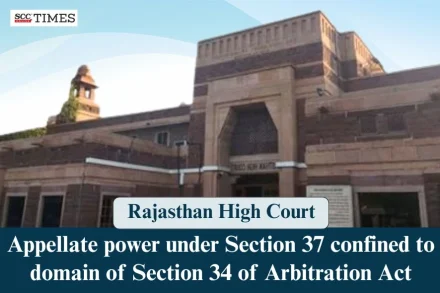
Rajasthan High Court: Appellate power under Section 37 confined to domain of Section 34 of Arbitration Act
“The scope of the intervention of the court in arbitral matters is virtually prohibited, if not absolutely barred.”

“The scope of the intervention of the court in arbitral matters is virtually prohibited, if not absolutely barred.”
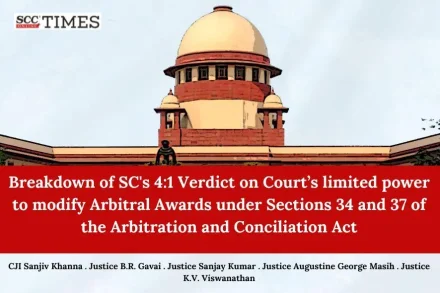
The present controversy arose because the Arbitration and Conciliation Act, 1996, does not expressly empower courts to modify or vary an arbitral award, and Section 34 of the 1996 Act only confers upon courts the power to set aside an award.
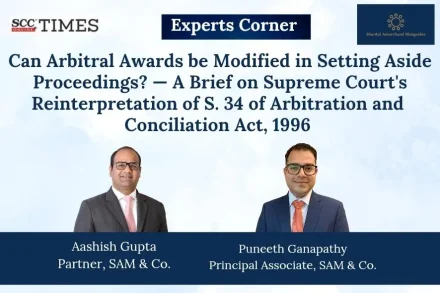
by Aashish Gupta*, Puneeth Ganapathy** and Rishab Aggarwal***
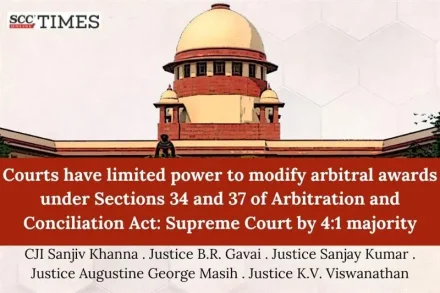
Section 34 of the Arbitration and Conciliation Act, 1996 provides the legal framework for challenging an arbitral award before a court, while Section 37 governs appeals against specific orders passed under the Act, including those made under Section 34.

“It is now trite law that State agencies cannot hide behind the conventional excuse of bureaucratic delays and inefficiency in the State’s capacity, to condone delays.”

“The award is not required to be set aside until and unless it is vitiated by “patent illegality” appearing on the face of the record with a caveat that the award should not be set aside merely on the ground of erroneous application of law or by appreciation of evidence.”
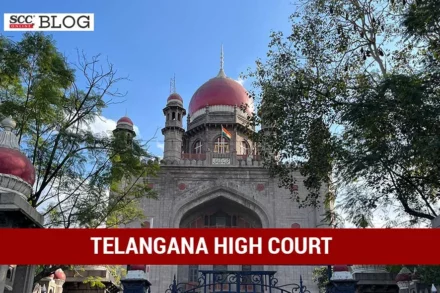
“The expression ‘public policy’ is of wider amplitude and hence, where award passed by arbitral tribunal is against the terms of contract or against law of land for time being in force, such an award is against public policy of India and is liable to be set aside under Section 34 of Arbitration and Conciliation Act, 1996.”

The concession agreement is neither a statute, nor is it a law which protects the national interests of this nation and a mere failure of the arbitral tribunal to consider an argument on the same would not render the arbitral award in contravention of the fundamental policy of Indian law.
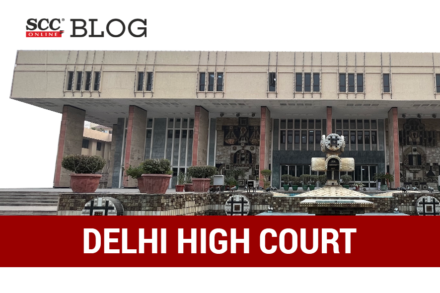
The impugned arbitral award was passed without considering the clauses of the Concessionaire Agreement while adjudicating on the rate of interest to be granted, thus, suffers from infirmity and patent illegality.
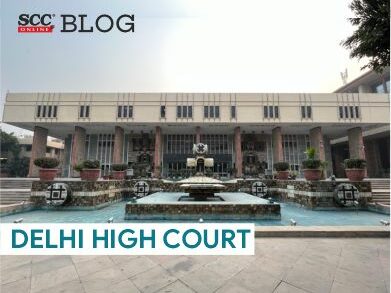
The scope of a challenge under Section 34 Arbitration and Conciliation Act, 1996 and Section 37 of the Arbitration Act, 1996 is limited to the grounds stipulated in Section 34 Arbitration Act.

All that the respondent wished for was a better roof over the head of his family. It was for this objective that the collaboration agreement was devised, but the appellant subjected the respondent to undue harassment on account of his illegal designs which led to the registration of the FIR, and the respondent had to run from pillar to post due to the direct acts of the appellant. Such circumstances do warrant awarding of damages on account of mental agony and harassment.
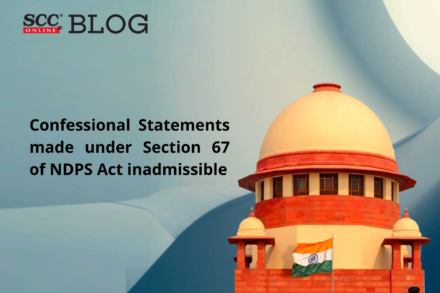
Supreme Court: In a case relating to a drug racket spread across three States namely, U.P., Punjab and Rajasthan, the 3-Judge Bench

Supreme Court: In a case where the Punjab and Haryana High Court not only set aside the judgment of the District Judge